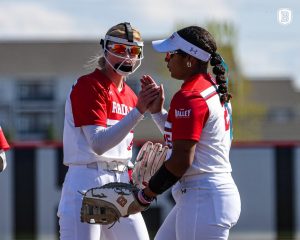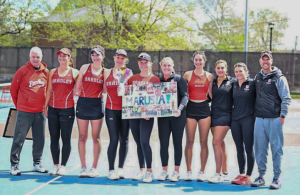Yes
BY BRANDON YOUNAN
The NFL should be playing games in London year-in and year-out because they are trying to expand the most popular sport in America to a market the sport could easily transition into. The NFL has been scheduling games in London since 2007 and has since grown from scheduling only one game per season to now four games per season.
Statistically, there has been a positive reception to the expansion of the London games as each game has sold out and drawn over 60,000 in attendance. Considering that the NFL is a business, it should continue to play games in London that will allow it to build a large enough fanbase to expand into a different market and create a new wave of fans.
Currently, the NBA is building a league in Africa that will allow the country to develop its homegrown talent and the NFL should try to replicate it. In Europe they will be able to grow the brand exponentially and become a more diverse league.
With the league having played London games since 2007, the fans in London have become more and more familiar with the game, allowing them to truly understand the sport which benefits them and the NFL. Not to mention that the atmosphere surrounding games in London is unlike any other that we see during the regular season. With a crowd that wears jerseys from every team and players from previous decades, the growth of the sport internationally has grown to a level of dedicated fans that we only see during the time of important playoff games such as a conference championship or the Super Bowl.
As the NFL looks to expand internationally, the London games give the organization the most realistic chance to consistently see a transatlantic franchise, and it could happen sooner than most think.
No
BY JACOB STEINBERG
Over the past 13 years, the National Football League has slowly developed a fanbase across the pond in London. This season, each game played in London and one game in Mexico City has been sold out. Despite the slow-growing efforts of developing a global fanbase, the league is playing with fire in its efforts to make the game global.
Sporting leagues across North America have benefitted from taking their game to the global stage due to their deep international pool of talent. Major League Baseball has staged successful games in Japan while the NBA has made trips to China and Africa. The NFL is progressing, but is still a good length away from becoming a global league. However, it might not be worth the cost because of the amount of lost money in the venture.
Brandon argues that the NFL can benefit from using the MLB and the NBA as examples on how to expand games globally. However, the game of football is not as global as either baseball or basketball. It is easier for spectators of different nationalities to watch a game filled with diverse amounts of talents. The NFL is at a disadvantage with staging international games because it has yet to develop a strong international talent pool.
Another backbreaker for the NFL is the complex logistical issues of staging games overseas. While teams spend time shipping resources overseas to London over the summer, football is a physically and mentally straining game for players. Most notably, the internal body clock of a player is usually out of sync when they are several hours away from home.
Playing games in London is a huge downside for players. Imagine going through the equivalent of a car crash every week while playing several time zones away from home. Is it worth it for the players?
If the NFL were more serious about expanding their game, they would invest more in developing an international talent pool and creating benefits for players after London games. But for now, the NFL’s efforts to expand the game to London is a dicey effort that has too many cons than pros.








